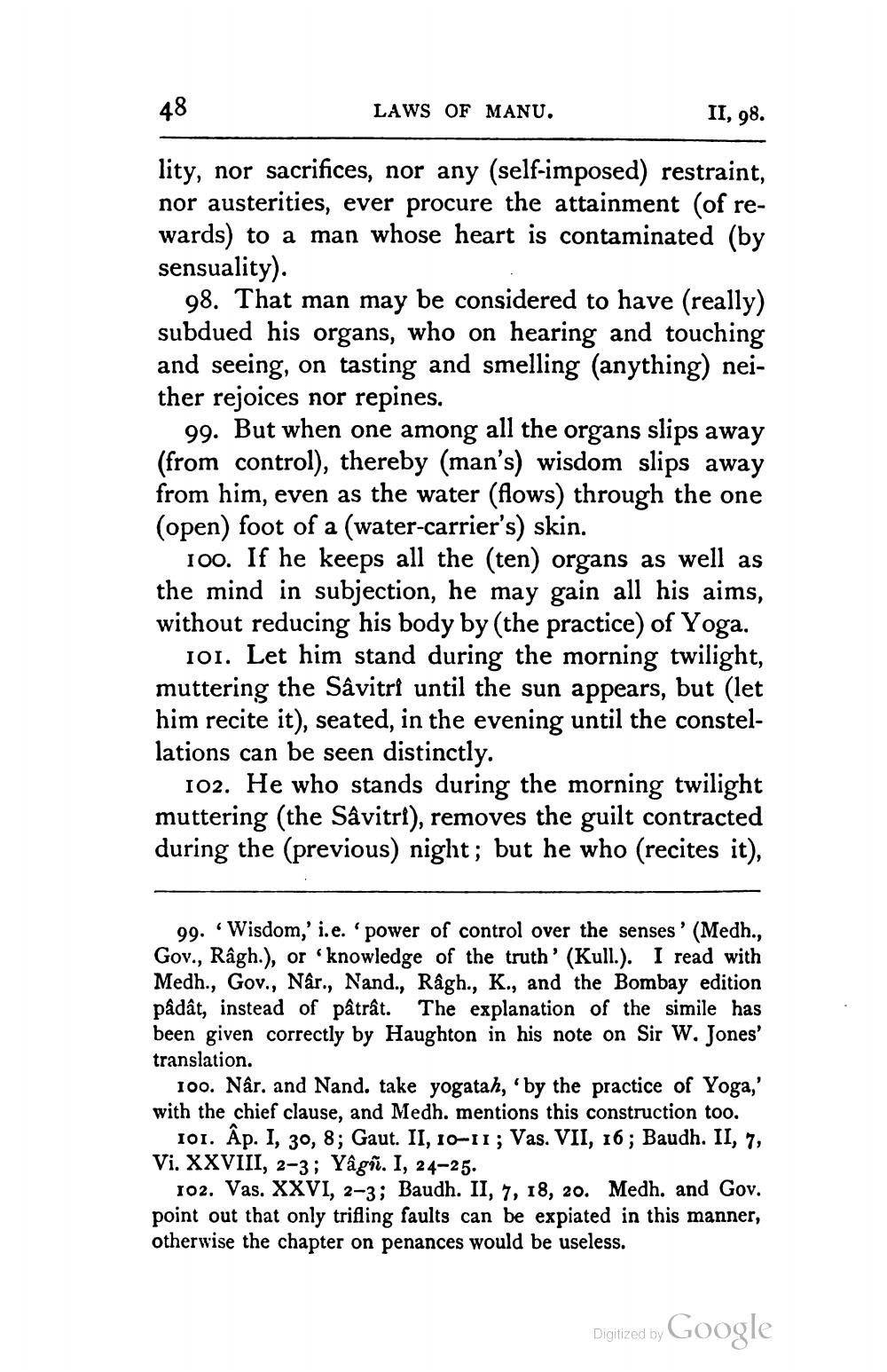________________
LAWS OF MANU.
II, 98.
lity, nor sacrifices, nor any (self-imposed) restraint, nor austerities, ever procure the attainment (of rewards) to a man whose heart is contaminated (by sensuality).
98. That man may be considered to have (really) subdued his organs, who on hearing and touching and seeing, on tasting and smelling (anything) neither rejoices nor repines.
99. But when one among all the organs slips away (from control), thereby (man's) wisdom slips away from him, even as the water (flows) through the one (open) foot of a (water-carrier's) skin.
100. If he keeps all the (ten) organs as well as the mind in subjection, he may gain all his aims, without reducing his body by (the practice) of Yoga.
101. Let him stand during the morning twilight, muttering the Sâvitri until the sun appears, but (let him recite it), seated, in the evening until the constellations can be seen distinctly.
102. He who stands during the morning twilight muttering (the Savitri), removes the guilt contracted during the (previous) night; but he who (recites it),
99. Wisdom,' i.e. power of control over the senses' (Medh., Gov., Râgh.), or knowledge of the truth' (Kull.). I read with Medh., Gov., Nár., Nand., Râgh., K., and the Bombay edition pâdât, instead of pâtrât. The explanation of the simile has been given correctly by Haughton in his note on Sir W. Jones' translation.
100. Nâr, and Nand. take yogatah, by the practice of Yoga, with the chief clause, and Medh. mentions this construction too.
101. Ap. I, 30, 8; Gaut. II, 10-11; Vas. VII, 16; Baudh. II, 7, Vi. XXVIII, 2-3; Yaga. I, 24-25.
102. Vas. XXVI, 2-3; Baudh. II, 7, 18, 20. Medh. and Gov. point out that only trifling faults can be expiated in this manner, otherwise the chapter on penances would be useless.
Digitized by Google




